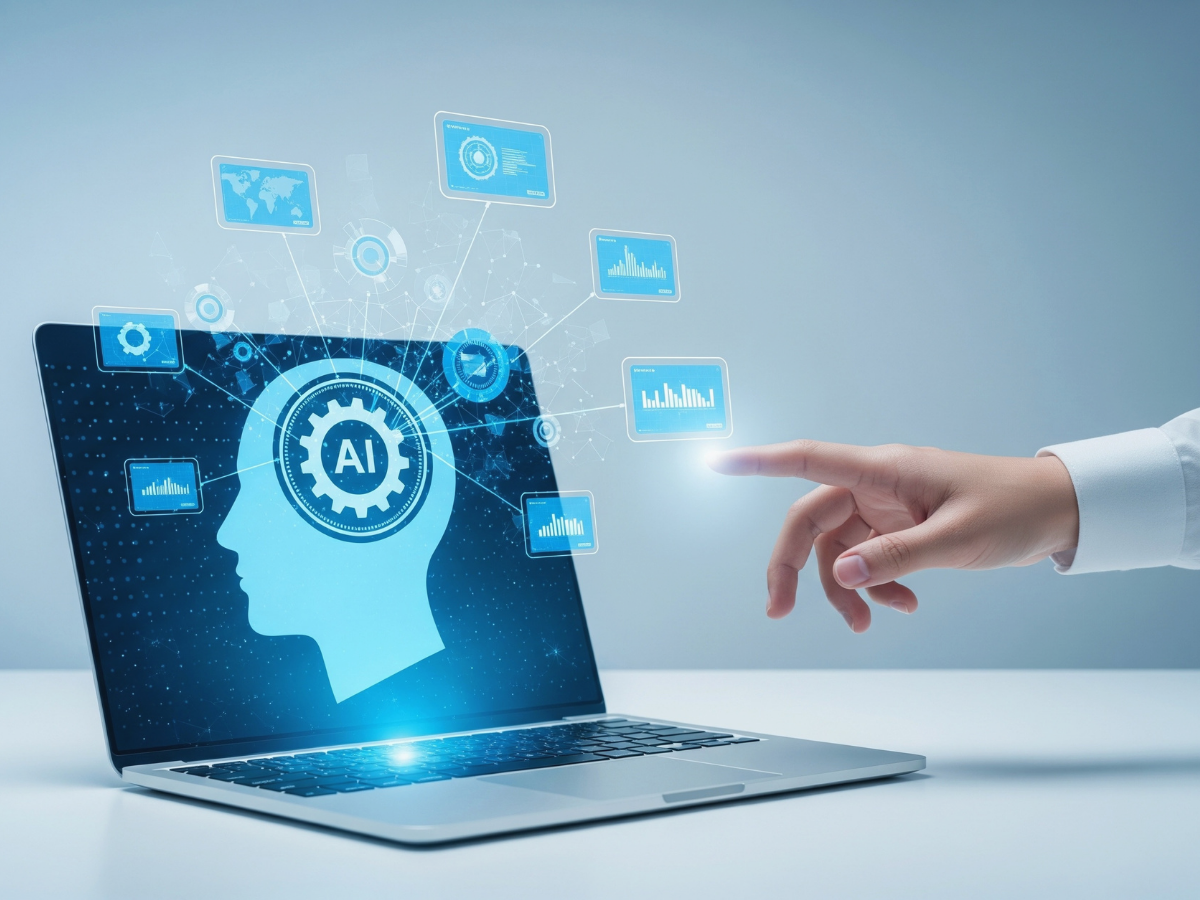“Does anybody remember who Rehoboam is?” I asked my Sunday school class.
One of the kids in the back immediately shouts out, “ChatGPT says he was Solomon’s son!” I was shocked. It happened so fast, not allowing anyone time to think about it. But ChatGPT had the answer.
This experience illustrates one of the many ways that artificial intelligence is changing daily life. While AI has been in use for a while, in recent times, its capabilities have increased significantly. Developers are adapting new applications into our world before we even have time to stop and consider the effects. It is true that AI is helping solve problems like never before. Still, I think we should carefully consider some of the claims about AI: namely, its being a means of connection for the lonely, a brain for the willing, and a tool to save the world.
As parents and Christians, how should we think about AI? We need a gospel framework that can help recalibrate our heart towards this powerful technology. I want to offer four truths from the gospel that help us shepherd our children to patiently, wisely, and carefully engage our AI world.
1. The gospel tells of our savior, and it’s not AI.
If you spend five minutes watching recent commercials about AI, you will quickly see that advertisers promote it as THE tool to make our world better. Like the promised one, Luke Skywalker in Star Wars, the tech world is saying, “This is what we have been searching for!” AI companies promise that their tool will logically and impartially be able to make decisions, plan our lives, legislate our problems, and evaluate causes to our societal brokenness. Unfortunately, this is just not the case. AI is not an autonomous living thing. It is a language model that is trained on something.
While, as in the case of the kid looking up Rehoboam, the answer may be correct and helpful, this is not always the case. This is particularly true when discussing more nuanced issues surrounding morality and relationships. For example, when people having marital issues engage ChatGPT for solutions, they may very well find Reddit board-trained answers saying they should pursue divorce. When kids are having relational troubles with their parents, they can receive counsel informed by a forum that says they should rebel. The possibility for bad advice doesn’t stop there, and it is having detrimental effects on our youth. They are not getting godly wisdom from people who love them, but from a sterile language model masquerading as wisdom. As parents, if we ourselves rely on AI for wisdom, we can easily be misled.
The gospel reminds us that Jesus is alone is the source of wisdom. In Colossians 1:15-20, Paul gives a lofty and powerful description of Jesus as Savior. He is the one to whom we should turn with questions that matter. He is the one in whom we should trust and put our hope for the world. In him “all the treasures of wisdom and knowledge” are hidden (Col. 2:3). So parents, as you hear about AI, as you use it, and as your kids begin to use it, keep this gospel framework in mind. No created thing can save us or give what only Christ provides. Therefore, use AI only for what it is: a powerful tool to accomplish certain tasks. Don’t elevate a tool to a source of ultimate wisdom or knowledge. It’d be like trying to get hydration from a hammer.
2. The gospel tells you who you are: humans made in the image of God.
With the advent of AI into mainstream use, we now face many questions about who we are. If AI can mimic human personality so well, what does it mean to be human? Are we mere ones and zeros? Are we just a collection of firing neurons? It is the gospel that tells us the story of who we are: beings uniquely made in the image of God. It is the gospel that tells us that those who have received Christ are a redeemed people with the Holy Spirit residing in us. 2 Peter 1:4 says that we are “partakers of the divine nature.”
We are not computers. Indeed, you and your family can never be replaced by AI. Jesus did not die for an algorithm, but for us: embodied souls made in his image. Therefore, parents, shepherd the hearts of your children to see themselves as loved image-bearers—those whom Jesus valued enough that he die for us. No tool built by human hands can ever come close to being an embodied spiritual person with a unique God-given personality.
3. The gospel gives you belonging to a people, not a virtual ‘friend.’
AI has a unique invitation to teenagers. Namely, it invites them to find their community with virtual personalities. Want to talk to someone who has knowledge about sports, or science, or literature, or whatever else? Well, there’s a “friend” for that! Want to talk to someone who knows a lot of jokes, and won’t judge you no matter what you tell it? There’s a “friend” for that, too!
The problem with this, in addition to the risk of misinformation, is that it won’t satisfy the genuine desire for connection and belonging that our teenagers have. AI relationships are a cheap alternative to what God has already given us in the Church. Ephesians 2:19 says that God brought us into his household. True connection is not with an AI personality, but with Spirit-filled people who can show actual love in both word and deed. Yes, these people will be awkward. They are imperfect. Yet God has made us for connection with other human beings. The Church is a blessing—God’s ordained means to hold us, keep us, and grow us in our relationship with Jesus.
So parents, please help your kids value the community God has given them: the Church and their family. Encourage a joy in the fellowship of one another by prioritizing that over anything else. If you find great joy and connection with other Christians, chances are your kids will too.
4. The gospel is the most beautiful thing on earth, and it is real.
While the promises of AI are big and flashy, the reality is that it can’t live up to it. It is one thing to appreciate the technology; it’s another to behold what it offers as true beauty. AI tells you that you can know anything, be anyone, have a constant connection, and so on. It is only the gospel of Jesus Christ that can provide what will truly make good on life-changing promises.
The gospel is the most beautiful thing on earth because it is the message of our salvation by faith in Christ, by which our sins are forgiven, and we are united to Christ. In Jesus that we receive all spiritual blessings. When all else passes away, the only thing that will matter is the beautiful vision of Christ coming back once more. There is nothing else on earth that can give this to you.
Our world is changing at a rapid pace. The technologies that shape this world can indeed shape our kids’ hearts. Yet, as a parent, you can take hope in the gospel. By pointing your children to Christ as their primary way of understanding who they are and for wisdom about the world around them, we can engage with culture and technologies in a more Christ-centered way.
Looking for more practical wisdom on parenting and technology? Try listening to this Parenting, Technology, and the Truth episode from our Parenting Podcast.








